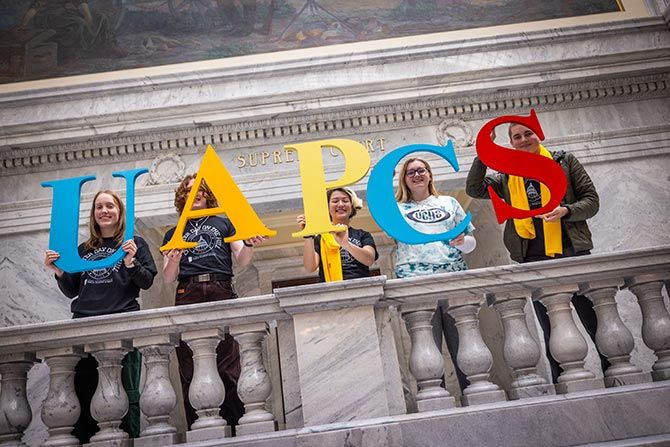I have always had such admiration for people willing to serve on charter boards. Through the years, I have had the privilege of working with amazing individuals who have put personal agendas aside and worked together as a team to make their charter school the best. One of the hardest jobs a board has is hiring a director and then evaluating his/her performance. The director of a charter school is the person responsible for running a school. The director takes the school mission and makes this lofty vision happen in the real world. The board sets policies to give direction to the director, but day-to-day interaction with students, parents and the surrounding community is orchestrated by the director. Curriculum, facilities, teacher evaluation and hiring of personnel are all part of the director’s job. How does the charter board know the director is doing a good job? Let’s examine that.
As the board prepares a process for evaluating their director, here are some questions that need to be addressed:
- Why should the board evaluate their director?
- How should the board choose an evaluation tool?
- What does the board need or want to evaluate?
- Who should be involved with the evaluation process?
Why Should the Board Evaluate Their Director?
Your charter school authorizer expects you, as a board, to evaluate your director. Good human resources practice would expect a director evaluation. Most importantly, an evaluation sets a professional standard for respectful, good communication between the board and the director.
How Should the Board Choose an Evaluation Tool?
An evaluation tool is simply a useful way for the director and the board to clearly discuss the school’s progress and the director’s role in ensuring progress. The whole board and the director should have input into choosing an evaluation tool.
An evaluation tool should:
- Set guidelines for a good conversation about areas going well and areas of improvement.
- Outline what is important to both the board and director.
- Provide the director with mutually set goals so there are no surprises.
- Use data, not just opinions, to evaluate the director’s performance.
- Document the director’s performance discussion with representatives from the board.
An evaluation tool should not:
- Give unrealistic goals that set the director up for failure.
- Sit on a desk until the end of the year, then be filled out and used to fire the director.
- Have so many priorities or annual goals that the director does not know where to focus energy.
There are lots of sample principal/administrator/director/leadership evaluation tools online. The Utah State Board of Education has an administrative evaluation tool on their website. In addition, the Interstate School Leaders Licensure Consortium (ISLLC) has up to date standards for school leaders.
Director evaluations should be held at minimum once a year; don’t skip an evaluation because things are good and then after three or so years, pull it out to “get” your director. An evaluation tool is not a “got you” tool. Rather, it is a basis for productive communication that moves your school forward, towards greater success.
What Does the Board Need or Want to Evaluate?
Financial stability, student outcomes, parent satisfaction, teacher retention, school culture, student attendance and enrollment numbers are some common areas that boards look at when evaluating their director. Each board will need to decide, with their director, what data is appropriate to review when measuring success toward the school’s mission. I recommend setting three to five mutually agreed-upon goals annually. This gives the board and director shared academic achievement and funding priorities. If current end-of-year testing is going to be used, that can delay evaluations. I recommend that end-of-year director evaluations happen before contract renewals. Remember, data can be collected all year, and if the board feels things are not going well, discussions should happen as soon as possible — don’t wait for the end-of-year or mid-year evaluation. The director needs to know what the board is thinking, based on data, so corrections have time to happen.
Data from parent surveys and/or teacher surveys are often used in the evaluation process. For example, if there are questions on the survey asking about school culture, the board needs to be clear with the director how that information will be used in evaluating his/her performance.
Once an evaluation tool is selected, the director, when giving their report at a board meeting, can refer to areas of the evaluation. For example, if the tool speaks to teacher professional development, then the director can report on the teacher professional development that happened that month and the board minutes provide documentation that can be used when evaluating that area on the evaluation tool.
Who Should Be Involved in The Evaluation Process?
Boards often use an evaluation committee to recommend an evaluation tool to the whole board for approval. It is always good to have input from the director on the evaluation tool to be used. The committee might ask each individual board member to fill out the evaluation and then gather the information to compile it into a concise evaluation. The committee might also ask the director to complete a self-evaluation so they can see how the director perceives his or her own performance. When a meeting is set with the director to review their evaluation, it is best to have at least two board members with the director. It can be overwhelming to have the whole board trying to give feedback, so the board chair and vice chair are often the board members who meet with the director. If the evaluation process has resulted in some financial concerns, you might choose your designated financial board member to attend with the board chair. The evaluation tool you have chosen is the evaluation discussion document. Don’t be afraid to add comments that are important to your discussion to the tool for documentation. Once the evaluation is complete, the completed document can be shared with the whole board.
Directors work hard and all directors want their school to achieve student success and make progress towards the school’s mission. Board members give their time voluntarily and have a vested interest in ensuring their school meets all students’ needs. One definition of evaluation is “a process that critically examines a program,” and, in this case, the person responsible for implementing that program. We all want to know we are doing a good job, that we are on the same page with others, and if not — how to improve. A director evaluation can be the discussion that moves the director to greater self-improvement and greater school success.
Kim Dohrer has worked in education for 40 years. She has been an administrator at all levels K-12. Before leaving for California, she served as the first president of Academica West. She currently consults with and volunteers in schools.








